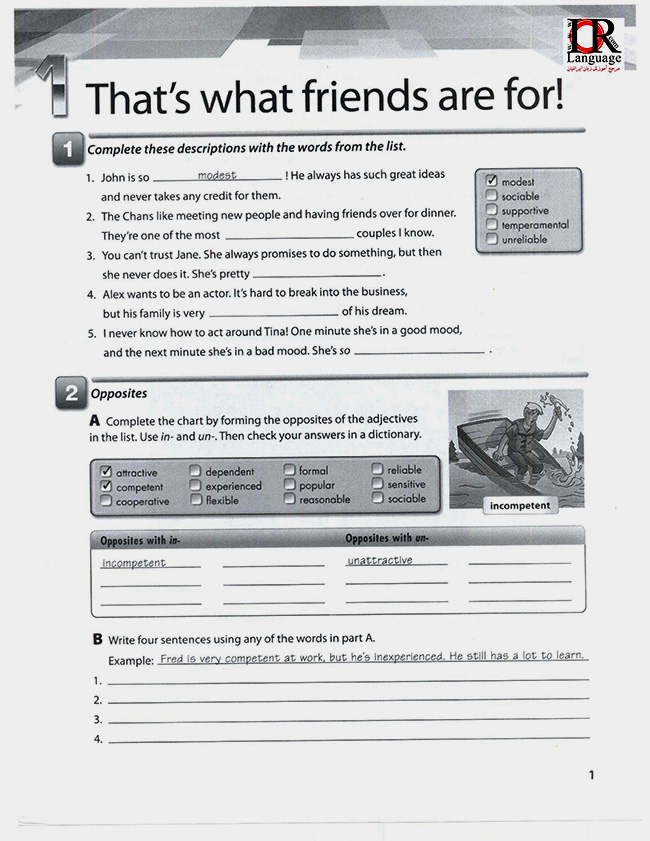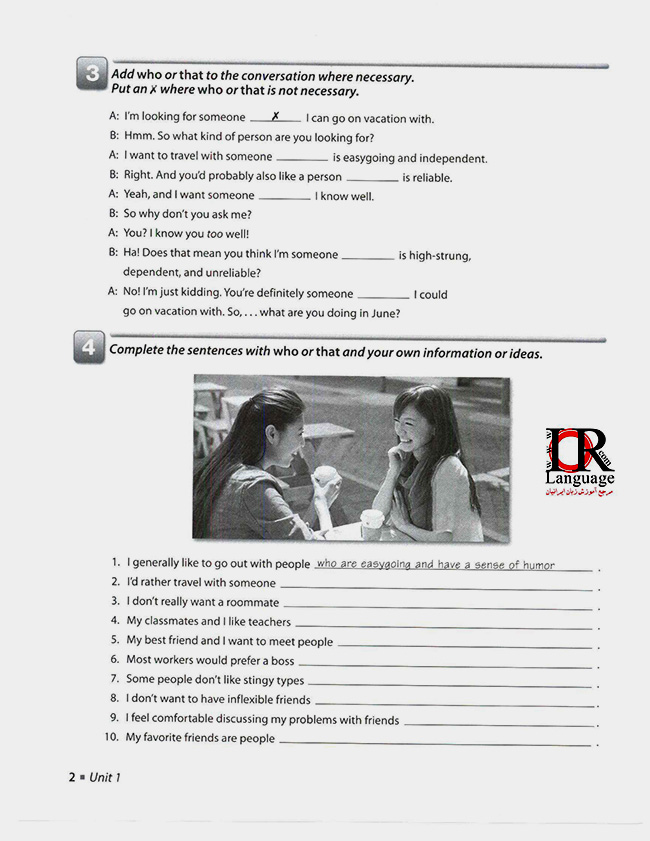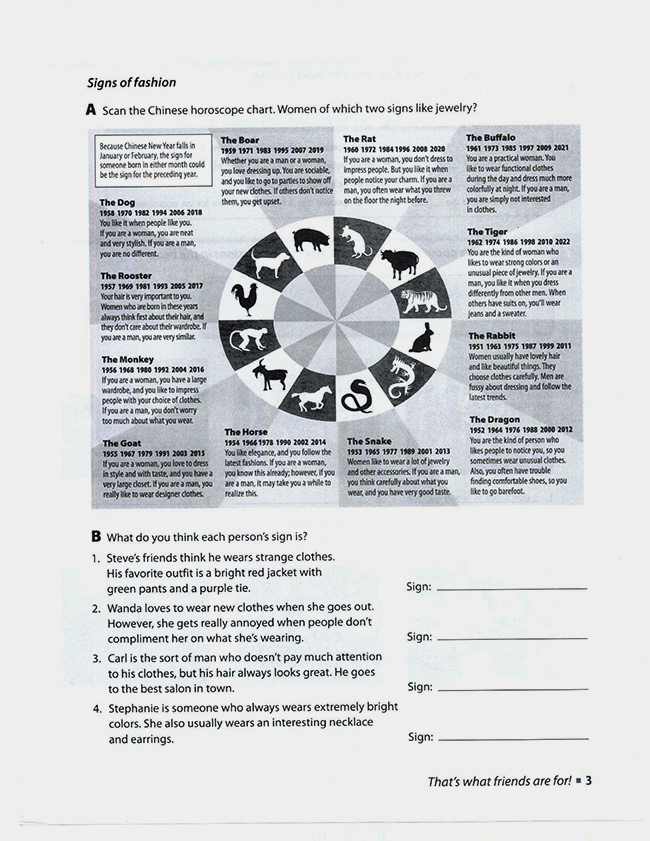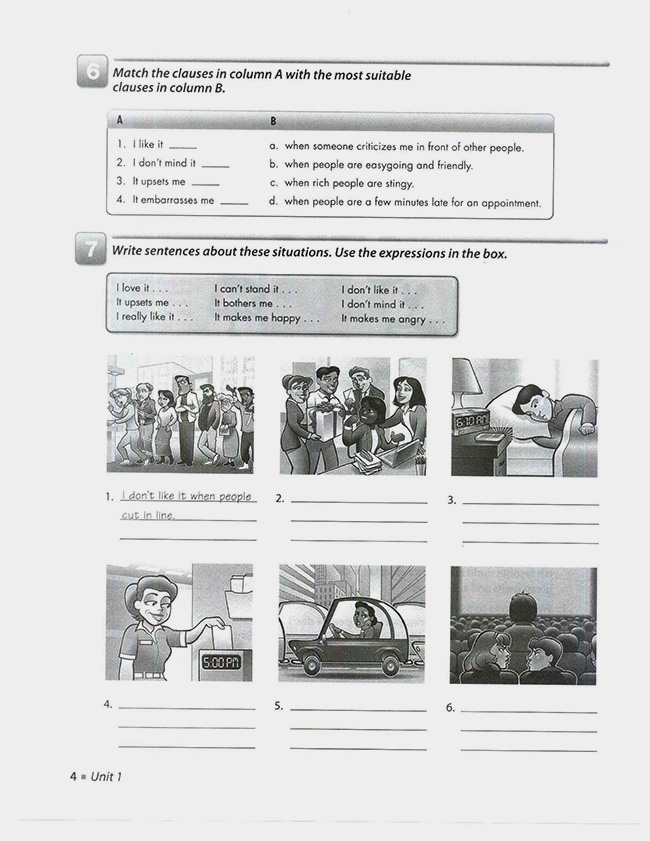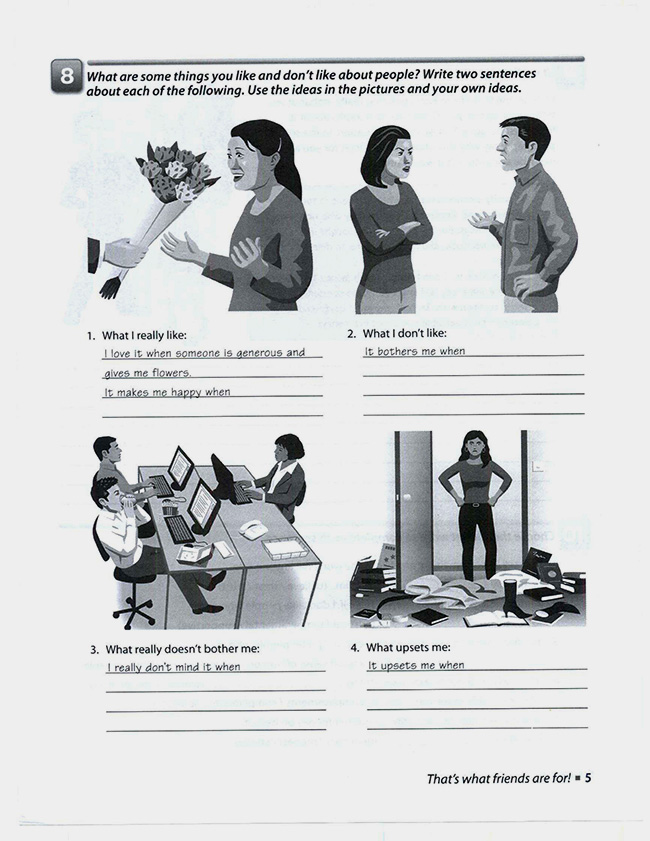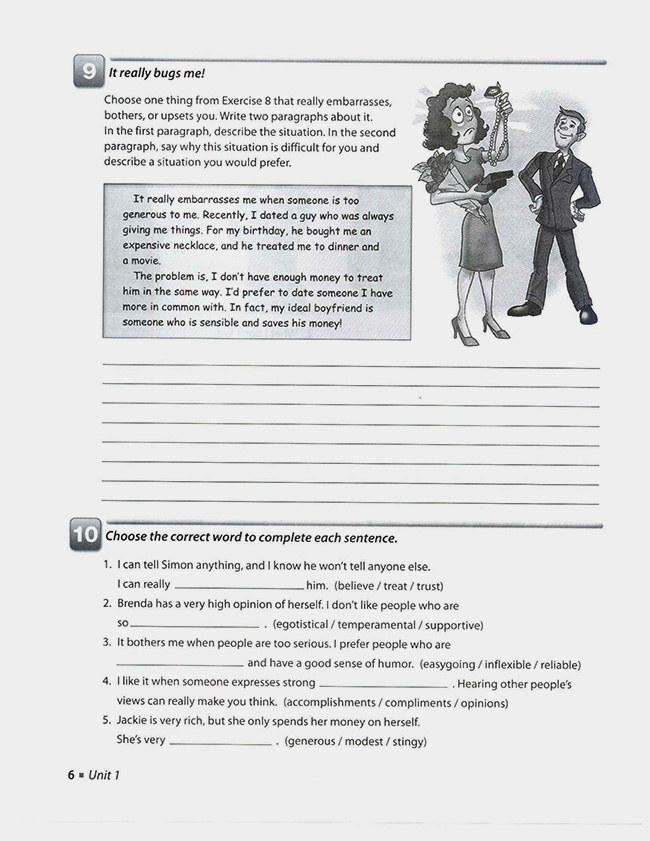
√ What women look for in a partner.
√ I like guys who....
√ WORD POWER Personalities.
√ LISTENING What are they like?


Unit 1
1 Relative pronouns (page 3)
► A relative pronoun - who or that- is necessary when the pronoun is the subject of the clause: I'd love to meet someone who/that is considerate, (not: I'd love to meet someone is considerate.)
► When the pronoun is the object of the clause, who and that can be left out: I'd like a roommate who/that I have a lot in common with, or I'd like a roommate I have a lot in common with.
Complete the conversation with who or that. Put an X when a relative pronoun isn't necessary.
A: Ana, have you met Clint - the guy.........X.........Laurie is going to marry?
B: Oh, Clint and I have been friends for years. In fact, I'm the one......................introduced Laurie and Clint.
A: Do you think they're right for each other?
B: Definitely. They're two people......................have a lot in common - but not too much.
A: What does that mean?
B: Well, you don't want a partner......................doesn't have his or her own interests. Couples......................do everything together usually don't last very long.
A: I guess you're right, but the opposite isn't good, either. My last girlfriend was someone......................I had nothing in common with. She wasn't the kind of
girl...................... I could talk to easily.
B: Well, you can talk to me easily____
2 It clauses + adverbial clauses with when (page 6)
► In sentences with an it clause + an adverbial clause with when, the word it refers to and means the same as the adverbial clause with when. The it in these sentences is necessary and cannot be left out: I hate it when people talk on a cell phone in an elevator, (not: I hate when people...) It bothers me when people talk on a cell phone in an elevator, (not: Bothers me when people...)
Rewrite the sentences using the words in parentheses.
1. I can't stand it when people call me before 8:00 a.m. (it really bothers me). It realy bothers me when people call me before 8.00 a.m.
2. It upsets me when I don't have enough time to study for an exam. (I hate it)
3. I don't mind it when friends talk to me about their problems. (it doesn't bother me)
4. I don't like it when I forget a co-worker's name. (it embarrasses me)
5. It makes me happy when my friends send me emails. (I love it)
6. I hate it when I have to wait for someone. (it upsets me)
Keys:
Unit 1
1 Relative pronouns.
A: Ana, have you met Clint - the guy X Laurie is going to marry?
B: Oh, Clint and I have been friends for years. In fact. I'm the one who/that introduced Laurie and Clint.
A: Do you think they're right for each other?
B: Definitely. They're two people who/that have a lot in common - but not too much.
A: What does that mean?
B: Well, you don't want a partner who/that doesn't have his or her own interests. Couples who/that do everything together usually don't last very long.
A: I guess you're right, but the opposite isn't good, either. My last girlfriend was someone X I had nothing in common with. She wasn't the kind of girl X I could talk to easily.
B: Well, you can talk to me easily____
2 It clauses + adverbial clauses with when
2. I hate it when I don't have enough time to study for an exam.
3. It doesn't bother me when friends talk to me about their problems.
4. It embarrasses me when I forget a co-worker's name.
5. I love it when my friends send me emails.
6. It upsets me when I have to wait for someone.



work book.